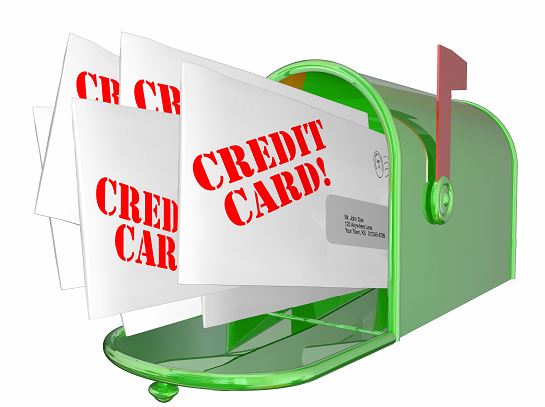Like many Americans, you may go check your mailbox and find it full. Some things we look forward to, like sports or fashion magazines, but none of us look forward to shredding piles of unsolicited mail. Along with coupons and store advertisements, you’ll often find pre-approved credit card offers.
Most people have received or seen these pre-approved credit card offers, but may still have questions about them.
Are Credit Card Pre-Approval Offers in the Mail Legit?
Here are answers to some of the common questions we hear regarding credit card solicitations.
1. Why Did I Get This Offer?
Credit card companies don’t send out offers randomly.
According to the Federal Trade Commission (FTC), pre-screening works in one of two ways:
- A creditor or insurer establishes criteria, like a minimum credit score, and asks a consumer reporting company for a list of people in the company’s database who meet the criteria
- A creditor or insurer provides a list of potential customers to a consumer reporting company and asks the company to identify people on the list who meet certain criteria.
Using the credit reports, they select candidates for pre-approved offers.
Being pre-qualified means you could be a good candidate for their card.
Pre-approval does not guarantee that you will receive the card if you apply.
2. Will the Offers Hurt My Credit?
No. Regardless of the number of pre-approved credit card offers you receive, your credit score will not be affected.
Your credit report will show inquiries each time a credit card company runs your report. However, these soft inquiries will not be calculated in your credit score. If you were to apply for the credit card, then the bank would run your credit again generating a hard inquiry, and that inquiry is calculated into your credit score.
3. How Do I Stop Them?
If you decide that you no longer wish to receive pre-approved offers, you can put an end to them.
According to the Federal Trade Commission’s website, “If you decide that you don’t want to receive prescreened offers of credit and insurance, you have two choices: You can opt-out of receiving them for five years or opt-out of receiving them permanently.”
To take advantage of either option, visit optoutprescreen.com.
In addition to lessening your junk mail, another benefit of discontinuing pre-approved offers is that it lessens the chance that one of those offers will land in the wrong hands, which can lead to fraud.
4. Are These the Best Credit Cards that I Can Get?
Not necessarily. The “best” credit card is not the same for everyone. One card may be perfect for one individual and not be a good fit for another.
If you decide to take advantage of one of these pre-approved offers, compare them not just to other pre-approved offers that you have received, but also to other credit cards available. Comparing and contrasting different options is key to finding the best fit for you.
Other thoughts to consider:
Don’t let the countless pre-approved offers convince you to open a new credit card you otherwise would not have applied for. If you don’t need a new credit card, just shred the offers and move on.
If your budget allows it, and you’re in the market for a new credit card be sure to explore your options. A key factor to consider when looking at new credit cards is the interest rate (APR). Having the lowest possible APR will allow for lower costs and a faster payoff when carrying a balance for any length of time.
Don’t apply to all of the pre-approved offers you receive in the mail. Doing so will have a negative effect on your credit score. Like any other type of credit, be sure to read all of the fine print of any offer before you apply.

